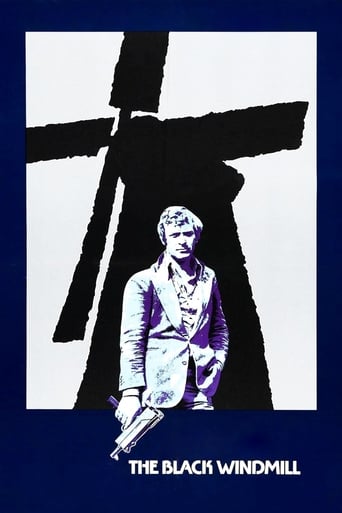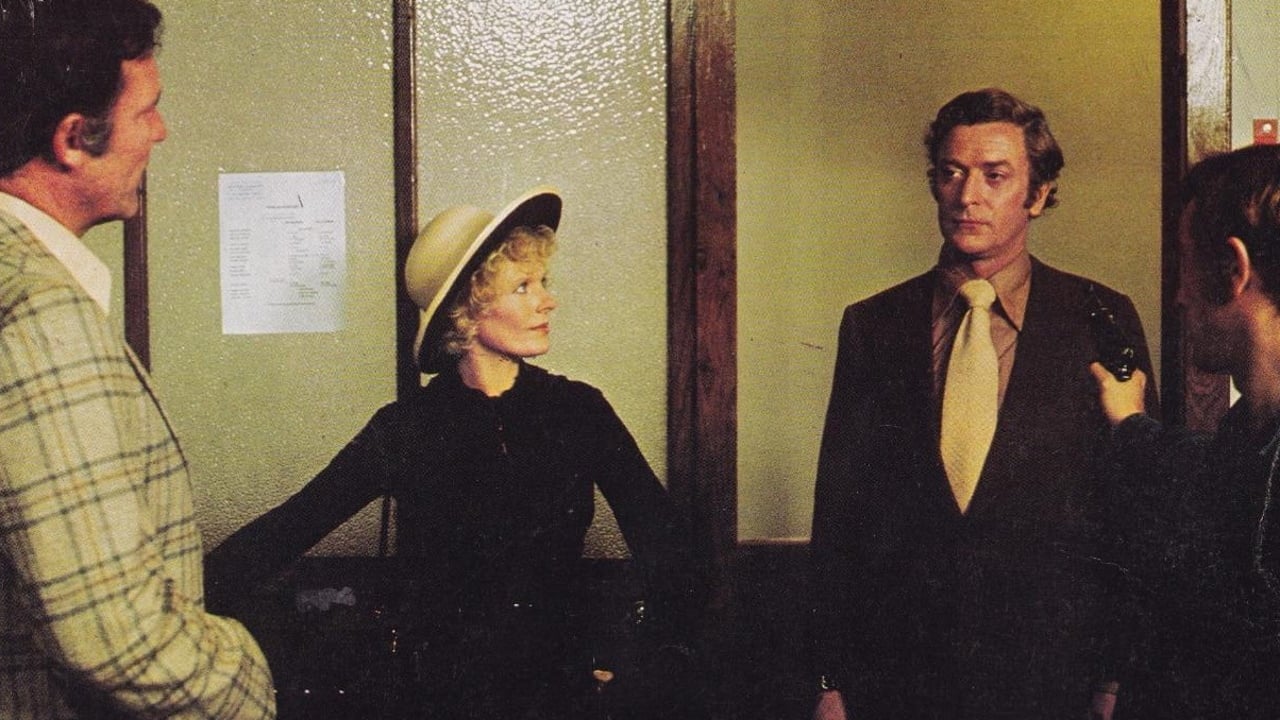James Hitchcock
I caught this film when it was shown on British television recently and was surprised that I had never previously heard of it, despite the fact that it stars an actor as iconic as Michael Caine and was made by a director as famous as Don Siegel. The "black windmill" of the title is one of the two Clayton Windmills (known locally as "Jack and Jill") on the South Downs near Brighton; this windmill plays an important part in the plot.As in "The Ipcress File", Caine plays a British secret service agent, but his character here, John Tarrant, is very different to Harry Palmer. Whereas Palmer was a working-class outsider, a former Army sergeant who was virtually blackmailed into joining the secret service to avoid a criminal charge, Tarrant is an establishment insider, part of the officer class. (He holds the rank of Major). He is engaged in an undercover operation to counter the activities of a gang of arms smugglers selling weapons to terrorists in Northern Ireland. (The film was made in 1974 when the Northern Irish troubles were at their height).The film starts with Tarrant's young son David being kidnapped and held to ransom. The kidnappers appear to have a detailed knowledge not only of Tarrant's family circumstances but also of the work he is engaged on; as their ransom they demand a valuable quantity of uncut diamonds which he has recently acquired to fund his intelligence work. Tarrant initially believes that the kidnappers are connected either to the arms dealers or to the terrorists for whom they are working, and confides in his superior, Cedric Harper. As matters progress, however, he begins to wonder whether matters are really as they seem and whether he can really trust his colleagues.This is far from being Caine's worst film. (For an actor of his distinction he made more than his fair share of dreadful ones, "Blame It on Rio" and "Ashanti" being two that come to mind). It does, however, highlight one of his weaknesses as an actor, namely that in the early part of his career he was not very good at conveying strong emotions. Most of his iconic roles, at least from this period, involved him playing characters who, for one reason or another, avoid showing much emotion. This could be because they need to keep up the "stiff upper lip" (his characters in "Zulu" and "Battle of Britain"), because they hide their feelings beneath a mask of impassivity (Jack Carter), because they deliberately avoid emotional commitment (Alfie Elkins) or because they try and distance themselves from their feelings through cynicism and irony (Frank in "Educating Rita"). Certainly, some of his more mature performances do show greater emotional depth, such as "The Honorary Consul" and "The Quiet American", but in "The Black Windmill" he is rather wooden, never suggesting the anguish and anxiety of a man whose son is being held for ransom.Some of the acting is better; Janet Suzman as Tarrant's estranged wife Alex provides the emotional conviction that Caine's performance lacks, while Donald Pleasence is very effective as the smooth but unsympathetic and possibly duplicitous Harper. The film as a whole is a professionally made thriller, if not a very original one, but an essentially American director like Siegel was not the most natural choice to direct a British spy thriller like this one. "The Black Windmill" is never going to rank on his filmography as highly as the likes of "Dirty Harry" and "The Shootist". 6/10
lost-in-limbo
Every now and again you come across a film that's somewhat a letdown, even when those expectations are kept at bay. Don Siegel's mid-70s espionage-thriller 'The Black Windmill' that starred Michael Caine falls in that category. If anything it was that title (which the story is adapted off Clive Egleton's novel "Seven Days to a Killing") which caught my eye. Siegel's adapt, controlled workhorse direction tackles the subdued material with little suspense, but constructing something tight, sullen and dry with the main focus on building something out of its elaborately knotty (but dubious) premise. It's a true pot-boiler entangled with twists. While the material is stimulating (with some good work by the solid support performances and an occasionally witty line) and the sturdy set-pieces are competently crafted, however the pacing is too blotchy and in the end it builds to really nothing. It loses some weight due to the lack of suspense and urgency with a crackerjack climax that's just too quick. Michael Caine's composed performance is strongly delivered, and John Vernon makes for an ideally icy and conniving villain. Donald Pleasance is delightfully squirmy (which his character likes to really fiddle with that moustache) and Janet Suzman provides some fire. Delphine Seyrig and Clive Revill offer able support too. Roy Budd's sizzling, but low-key music score works well and Ousama Rawi lenses it with a great illustrative eye. Siegel's touch is evident in both of those devices. An unexceptional feature, but still its well organised and performed.
Marlburian
I usually enjoy Michael Caine's films, but though this one started promising enough, its second half made the overall effect disappointing. The most dissatisfying aspect was how Tarrant and his wife worked out exactly where their son was being held on the basis of a phone call from the Brighton area and the villain's reference to a "pleasant farm" and two "rather unusual windows"; this defied belief.Other contributors have already noted one witty reference, to "Sean Connery"; there is another, in that the Tarrants rendezvous outside a cinema where "Battle of Britain" (starring Caine) is showing.And wasn't that Richard Attenborough playing the jeweller visited by the two men from New Scotland Yard; this role appears not to feature in the filmographies I've glanced at.
Coventry
This early 70's British thriller is presented by a famous director (Don Siegel of "Invasion of the Body Snatchers" and "Dirty Harry") and stars a couple of very prominent and contemporary popular male names like Michael Caine, Donald Pleasence and John Vernon. Yet it somehow ended up in total oblivion and it has not been released on DVD so far. Perhaps this can partly be explained because it's a very slow and largely action-free movie that came out in era dominated by rough and extravagant exploitation efforts. Still, if you're a fan of espionage or political thrillers in general, you might want to look for "the Black Windmill" after all, since it definitely contains some redeeming elements. Although completely implausible, the story is fairly compelling with some inventive plot twists and most notably some excellent examples of dry British humor. Caine plays an agent working for the country's secret service, a job that already cost him his marriage. When his 7-year-old son gets kidnapped and the culprits demand an extremely high ransom to be paid in diamonds, John Tarrant starts the rescue mission on his own. While his supervisors still wonder about where the leak in their organization comes from, Tarrant steals the diamonds himself and heads for France to meet the kidnappers. Nothing spectacular happens for a long, long time and it's only Donald Pleasence's (and others) wit remarks that keep you mildly interested in the film. The entire middle-section is painfully boring and, although the ending makes up for much, it can't possibly be called a classic. Oh, and don't start looking for the mysterious titular black windmill right away, as this uncanny building is just a tiny aspect in the story and not even that relevant. Not trying to spoil things here, just advising the people that are, like me, attracted by the ominous windmill on the box cover not to expect too much.


 AD
AD





